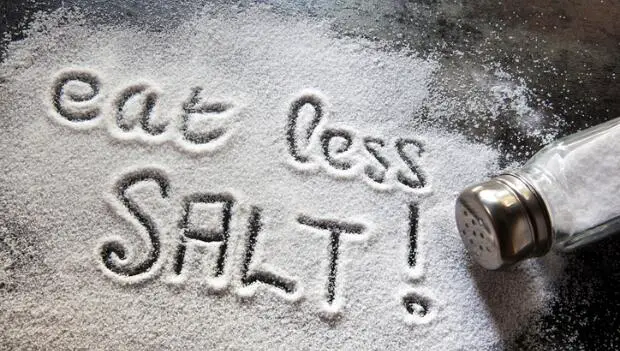Costa Rica almost doubles the amount of salt that, according to the World Health Organization (WHO), should be consumed, a situation that is worrying the authorities of the Costa Rican Social Security Fund (CCSS).
Specialists in the nutrition of the entity and the Costa Rican Institute for Research and Education in Nutrition and Health (Incenses) recognize the importance of following up this issue since the consumption of salt and sodium is directly related to hypertension and the increase of blood pressure is a risk factor for cardiovascular diseases.

Therefore, in order to raise awareness among the Costa Rican population about the need to reduce salt and sodium consumption, institutions of the health sector in Costa Rica are organizing themselves to achieve a change in behavior, attitudes, and practices in relation to the consumption of these substances.
As part of this awareness-raising effort coordinated by the experts of Incenses, as of Monday, February 18th, 2 international activities will be held in the national territory that will bring together professionals from health sector institutions.
This is the 2nd international workshop called Application of social marketing in the creation of capacities and the reduction of salt intake in Latin America: Development of creative strategies, which will be carried out with funds from the International Center for the Development of Research in Canada (IDRC) from February 18th to 20th and is organized, jointly, by the Incense and the Social Marketing Collaborating Center of the World Health Organization (WHO), located at the University of South Florida.
In this opportunity, the results of the formative research carried out by each of the countries, a regional creative summary and a target behavior approach for the regional strategy of reducing the consumption of sodium in the population through this discipline will be presented.
This knowledge will be very useful to support the Initiative of the Pan American Health Organization (PAHO) and WHO on the Prevention of Cardiovascular Diseases through Salt Reduction and the Program for the Reduction of Excessive Consumption of Salt/Sodium in Costa Rica. Rica declared of public and national interest by executive decree DM-MG-1083-2013.
After the workshop, the IDRC 108167 International Meeting “Climbing and evaluating salt reduction policies and programs in Latin American countries” will be held from February 20th to 22nd, with all the representatives of the participating countries and the advisors. International technicians and a tribute will be paid to Dr. Mary L’Abbe, newly decorated with the “Order of Canada” for her contributions in public health.
Dr. L’Abbe is projected technical advisor, a professor at the University of Toronto, director of the Initiative on the Prevention of Cardiovascular Diseases through Salt Reduction and the “Nutrition Guidance Expert Advisory Group on Diet and Health” of PAHO / WHO, among other important positions.
The headquarters of both activities will be the Hyatt Place hotel in Pinares de Curridabat and will be attended by Incense authorities, the Ministry of Health, PAHO, the IDRC of Canada, and the Embassy of Canada.
It should also be remembered that from March 4th to March 10th the World Health Awareness Week 2019 will be held, in which the CCSS has a great interest in promoting since institutional studies reveal that 36% of the population It is hypertensive. In fact, this condition is one of the most important risk factors for the gestation of cardiovascular diseases.
During 2017, the CCSS invested ¢ 78,898 million in the care of that kind of diseases, which represents about 4% of total institutional spending.
The WHO recommends consumption of 5 grams per day, while in Costa Rica that intake is doubled. Hence the urgency that nutrition specialists have to develop strategies to motivate the population to lower salt and sodium consumption.


